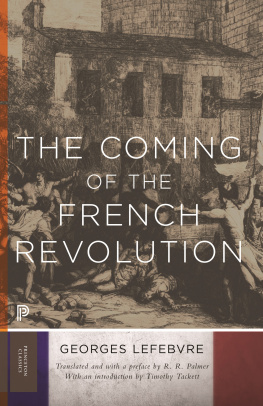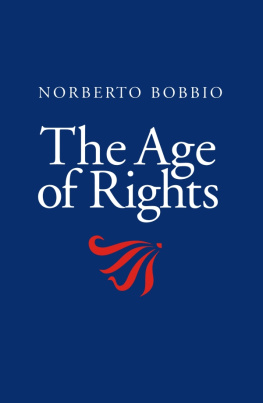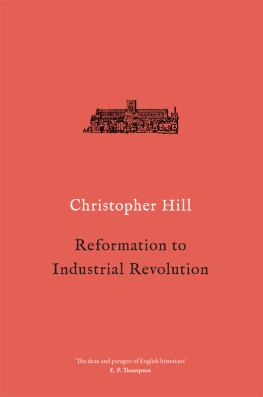Contents
Page List
Guide
THE COMING OF THE FRENCH REVOLUTION
THE COMING OF THE FRENCH REVOLUTION
BY GEORGES LEFEBVRE
Translated and with a preface by
R. R. PALMER
With a new introduction by
TIMOTHY TACKETT
PRINCETON UNIVERSITY PRESS
PRINCETON AND OXFORD
Copyright 1947, renewed 1975 by Princeton University Press
New introduction Copyright 2005 by Princeton University Press
Published by Princeton University Press, 41 William Street,
Princeton, New Jersey 08540
In the United Kingdom: Princeton University Press,
6 Oxford Street, Woodstock, Oxfordshire OX20 1TW
All Rights Reserved
First published in English in 1947
First paperback edition, 1967
First expanded Bicentennial edition, 1988
First Princeton Classic Edition, with a new introduction by Timothy Tackett, 2005
New Princeton Classics Edition printing, 2015
Paperback ISBN:978-0-691-16846-3
This work was first published in French, under the title Quatre-vingt-neuf, in 1939 under the auspices of the Institute for the History of the French Revolution, University of Paris, in conjunction with the National Committee for the Celebration of the 150th Anniversary of the French Revolution.
The Library of Congress has cataloged the last edition of this book as follows:
Lefebvre, Georges, 18741959.
[Quatre-vingt-neuf. English]
The coming of the French Revolution / by Georges Lefebvre ; translated and with a preface by R.R. Palmer.1st Princeton classic ed. / with a new introduction by Timothy Tackett.
p.cm.
Include bibliographical references and index.
ISBN 0-691-12188-5
1. FranceHistoryRevolution, 17891799Causes. I. Title.
DC138.L4513 2005
944.041dc222005040861
British Library Cataloging-in-Publication Data is available
This book has been composed in Minion
Printed on acid-free paper.
press.princeton.edu
Printed in the United States of America
10 9 8 7 6 5 4 3 2 1
Contents
Introduction
BY TIMOTHY TACKETT
THE Revolution that occurred in France in the last decade of the eighteenth century was one of the pivotal moments in the recent history of the Western world. The modern concepts of liberalism, nationalism, republicanism, feminism, abolitionism, and de-Christianization were all powerfully influenced and propagated, if not invented, by the French Revolution. This event took place, moreover, not in an obscure country on the fringes of Western culture, or in a nation in decline, but in one of the worlds great powers, with economic strength, military might, and cultural influence second to none. Indeed, once the new regime turned outward and became expansionist, the Revolutionary state and the Napoleonic imperium that followed profoundly disrupted and sometimes transformed regimes throughout Europe and the Atlantic world.
Perhaps no single issue concerning this extraordinary event has seemed more puzzling than the problem of its origins in 1789. How was it that such a vast upheaval broke out in the first place? Was it a question of material suffering or a sense of injustice and envy between different social groups in France? Or did it come about through the power of a new ideology or through an internal breakdown of central authority or even through the conspiracy of a small minority of dedicated fanatics? Like the fall of Rome or the rise of capitalism, the origins of the French Revolution have been debated again and again, with interpretations invariably colored by the problems and perspectives prominent in each generation. Indeed, in France itself an understanding of the Revolution and its origins was linked to the very concept of national identity, and a whole series of statesmen-writersfrom Franois Guizot, Louis Blanc, and Alphonse de Lamartine to Alexis de Tocqueville, Adolphe Thiers, and Jean Jaursfelt compelled to confront and write at length on this moment in their nations past.
Only toward the end of the nineteenth century did the history of the Revolution become an academic discipline. The first scholarly review consecrated to the subject was created in 1881, and ten years later a chair in the Revolution was established at the University of Paris. Thereafter a series of remarkable French specialists (from Alphonse Aulard and Albert Mathiez at the beginning of the twentieth century to Albert Soboul and Michel Vovelle at the end) wrote, directed, or inspired thousands of carefully documented archival studies on almost every aspect of the Revolutionary experience, not only in Paris but in hundreds of regions and towns throughout the country. Yet even with this great accumulation of writings and new knowledge, the resolution of the problem of the Revolutions outbreak remained elusive.
I
In this long and distinguished line of historians, no one grappled longer and harder with the origins of 1789, no one attained a greater mastery of both the archives and the scholarly literature of the Revolution, than the author of the present study, Georges Lefebvre. Lefebvres life spanned virtually the entire period of the French Third and Fourth Republics. Born in 1874 in the industrial city of Lille near the Belgian border, he was the son of a minor accountant for a commercial firm, the grandson of a simple textile worker. With such modest family resources, he was able to attend school only by means of a series of scholarships, and he could never afford studies in Paris. Moreover, the peculiarities of his education in Lille led him to concentrate on modern languages, science, and mathematics rather than on the Latin, Greek, and philosophy that formed the core curriculum in Frances elite institutions. Though such an education made it more difficult for Lefebvre to penetrate the Parisian intellectual elite, it would also make him more open than most of his contemporaries to scholarship published outside France and to the application of the social sciences and statistics to history.
At the University of Lille his earliest love was for medieval English history. The eminent medievalist Charles Petit-Dutaillis took on the young Lefebvre as a collaborator in the publication of a French edition of William Stubbss massive constitutional history of medieval England. Lefebvre did the entire translation from the Englishwell over two thousand pages of text and notesand added a lengthy supplement to the final volume, summarizing with immense erudition works published on the subject since Stubbss death, a supplement that would later be translated into English.
It seems to have been sometime after he had passed the agrgation examination in 1899 and had completed his requisite military service that he discovered the French Revolution. Of particular importance in this conversion, as he would recall many years later, was his encounter with the multivolume socialist history of the Revolution written by the political leader and statesman Jean Jaurs. Though he never met Jaurs personally, and saw him only twice, listening to his speeches in the midst of great crowds, he would always refer to Jaurs as his teacher.
Since his youth Lefebvre had been nurtured on the Marxist theories of Jules Guesde, the representative from Lille to the French National Assembly. But he seems to have found a particular affinity with Jaurss less doctrinaire brand of Marxism. He joined the unified socialist party (the S.F.I.O.), founded by Jaurs in 1905, and maintained his membership to the end of the Third Republic, even after the formation of the more radical Communist Party in 1920. Through his early readings and his political initiation, Lefebvre came firmly to believe in the importance of Karl Marxs understanding of social class in the development of history. Yet throughout his life such convictions existed in a curious and complex tension with his commitment to the positivist, empirical approach to history that he had learned from Petit-Dutaillis. He was a voracious but meticulous researcher, who always promoted careful erudition and pursued it himself with almost obsessive dedication: without erudition there can be no history. He looked for inspiration in Descartes













